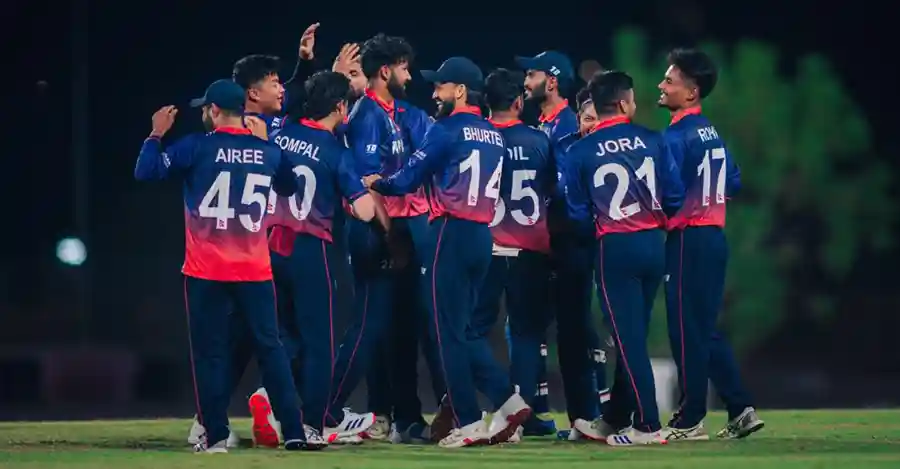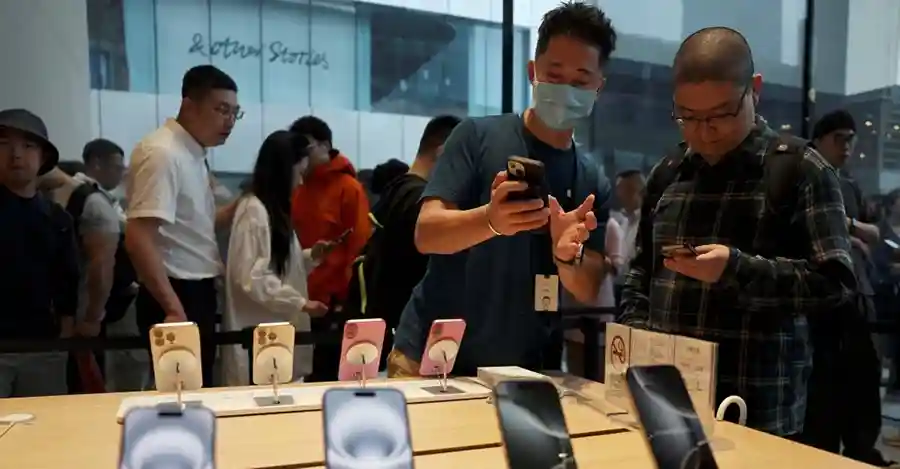In an extraordinary surge powered by nationalist sentiment and government endorsements, Arattai—Zoho’s made-in-India messaging platform—has emerged as the most talked-about Arattai vs WhatsApp India competitor, rocketing from under 10,000 downloads in August 2025 to over 7.5 million in just weeks. Daily signups skyrocketed 100-fold from 3,000 to 350,000 following federal ministers’ public endorsements and Prime Minister Narendra Modi’s “Make in India” campaign amid escalating US trade tensions. Yet despite the viral sensation and patriotic fervor, Arattai faces formidable challenges: WhatsApp’s entrenched 500 million Indian users, critical missing end-to-end encryption for text messages, and a history of failed Indian app challengers like Koo and ShareChat that flamed out after initial buzz. Can government backing and nationalist pride overcome fundamental technical gaps and network effects, or will Arattai join the graveyard of WhatsApp alternatives?
The Explosive Growth Story Behind Arattai’s Viral Success
From Obscurity to 7.5 Million Downloads in Weeks
Arattai, soft-launched in January 2021 following WhatsApp’s controversial privacy policy changes, remained largely unknown for four years before experiencing a meteoric surge in September 2025, crossing 7.5 million downloads as Indian government figures clamored for a local alternative to the Meta-owned chat app, with downloads in September 2025 reaching 400,000 compared to below 10,000 in August 2025.
Download trajectory:
- August 2025: Less than 10,000 total downloads (Sensor Tower data)
- Early September 2025: Approximately 3,000 daily signups
- Mid-September 2025: Daily signups explode to 350,000 (100X increase)
- October 2025: Cumulative downloads exceed 7.5 million
- App Store ranking: Briefly became #1 app on Indian iOS and Android stores
Zoho CEO Sridhar Vembu attributed the sudden surge to government promotion: “In just three days, we saw daily sign-ups increase from 3,000 to 350,000. In terms of our user base’s active users, we saw a 100X jump, and that number is continuing to rise.”
Government Endorsement Drives Nationalist Downloads
The appeal accelerated when government endorsement, policy support, and media buzz caused downloads to skyrocket, with the app becoming a synonym of Indian digital autonomy following September 21, 2025, as India Today reported its daily downloads increased 100 times within three days.
Key government endorsements:
- Federal Minister Dharmendra Pradhan: Posted on X urging Indians to use “India-made apps [to stay] connected”
- Multiple cabinet ministers: Publicly promoted Arattai on social media
- Business leader support: Anand Mahindra (Mahindra Group chairman) endorsed the app
- Timing significance: Coincided with US tariff tensions and “Make in India” campaigns
- Nationalist messaging: Appeals to self-reliance (“Atmanirbhar Bharat”) sentiment
Zoho acknowledged: “The push from the government definitely contributed to the sudden surge in Arattai downloads.”
Arattai vs WhatsApp: Feature-by-Feature Comparison
Core Messaging Capabilities
Zoho launches Arattai as a secure, ad-free Indian alternative to WhatsApp with features like Meetings, Pocket, and Mentions, supporting up to 1,000-member group chats on Android and iOS, while Arattai supports file sharing up to 1 GB including photos, videos, and documents with a stories feature for temporary updates.
Feature comparison table:
| Feature | Arattai | Winner | |
|---|---|---|---|
| Group size | 1,000 members | 1,024 members | Tie |
| File sharing limit | 1 GB | 2 GB | |
| Voice/video calls | Yes, E2EE | Yes, E2EE | Tie |
| Text encryption | ❌ Not E2EE | ✅ Full E2EE | |
| Advertisements | None | None | Tie |
| Data storage | India | Global | Preference-based |
| Business tools | Yes | Yes, more mature | |
| Stories feature | Yes | Status (polished) | |
| Low-bandwidth support | Optimized | Optimized | Tie |
Unique Arattai Features Not in WhatsApp
Arattai differentiators:
- Meetings feature: Built-in video conferencing functionality
- Pocket: Content saving and organization tool
- Mentions system: Enhanced group communication management
- Indian language support: Designed specifically for Indian linguistic diversity
- No phone number requirement: (upcoming feature – account creation flexibility)
- Local data storage: All information stored on Indian servers
User feedback highlights:
- Many praised intuitive interface design
- Smooth performance on low-end Android devices
- Clean, ad-free experience appreciated
- Patriotic pride in supporting Indian technology
The Critical Privacy Gap: Why Encryption Matters
Missing End-to-End Encryption for Text Messages
Arattai currently lacks end-to-end encryption for text messages—a critical gap that undermines its privacy claims, as while Zoho has commendably integrated E2EE for voice and video calls, the same standard has not been applied to text chats, meaning calls are secured so nobody else can listen in but messages remain vulnerable.
Current encryption status:
- ✅ Voice calls: End-to-end encrypted (E2EE)
- ✅ Video calls: End-to-end encrypted (E2EE)
- ❌ Text messages: Not end-to-end encrypted (stored encrypted on servers, but Zoho has access)
- ❌ Media in chats: Not end-to-end encrypted
- ❌ Group chats: Not end-to-end encrypted
Why this matters: Without E2EE for text messages, Arattai can theoretically access message content, creating several risks:
- Government data requests: Indian authorities could demand message content
- Corporate data breach: Hacking could expose user conversations
- Employee access: Zoho staff technically could view messages
- Third-party sharing: Potential for data monetization or sharing
- Surveillance concerns: State monitoring capabilities without user awareness
While Arattai encrypts voice and video calls, text messages are not fully end-to-end encrypted, raising questions about whether it can truly compete with WhatsApp in terms of security and privacy, especially for users who handle sensitive information via chat.
Zoho’s Response to Encryption Criticism
Zoho CEO Sridhar Vembu addressed the encryption gap, stating they are “actively working on rolling out end-to-end encryption for text messages.”
“We had initially planned to launch this app after E2EE, which would have happened in a couple of months. However, the timelines have been pushed up, and we are trying to bring some critical features and infrastructure support as quickly as possible.”
Timeline commitment:
- Current status: E2EE only for voice/video
- Promised delivery: “Couple of months” from October 2025
- Estimated launch: December 2025-January 2026
- User concern: Operating without full encryption during growth phase
The Uncomfortable Trade-off: Privacy vs. Government Access
India’s Traceability Requirements
Shashidhar KJ, managing editor at MediaNama, explains the government’s position: “The government wants to establish traceability of messages citing security concerns and this can be done easily without end-to-end encryption. But this puts people’s privacy at risk.”
India’s digital regulations:
- Social media platforms must share user data with government under certain circumstances
- 2021 IT Rules require content traceability for law enforcement
- Courts can order platforms to reveal message originators
- National security exceptions override privacy protections
International platform resistance:
- WhatsApp (2021): Sued Indian government over digital rules violating privacy protections
- Twitter/X: Mounted legal challenges against content takedown orders
- Meta platforms: Pushed back against data access demands
- Foreign companies: Have legal/financial resources to resist
Will Arattai Resist Government Demands?
Technology analyst Prasanto K Roy raises the critical question: “It’s possible for Zoho to feel beholden to the government, especially since federal ministers have been publicizing the app. It may not be easy for an Indian start-up to strongly resist when asked to comply with the country’s laws and law enforcement requests.”
Tech law specialist Rahul Matthan warns: “Until there is more clarity on Arattai’s privacy architecture and Zoho’s stand on sharing user-generated content with the government, many people may not feel comfortable using it.”
Zoho’s stated position: Sridhar Vembu responded: “The company wants its users to retain full control over their data while complying with the country’s information technology rules and regulations. Once full end-to-end encryption is rolled out, even we won’t have access to the content of user conversations. We will be transparent with our users about any legal obligations.”
The credibility question:
- Can Indian companies resist government pressure like foreign giants?
- Will nationalist branding create expectations of cooperation with authorities?
- What happens when privacy and national security claims conflict?
- Will users trust promises that haven’t been technically implemented?
WhatsApp’s Unshakeable Dominance in India
The 500 Million User Fortress
WhatsApp’s position in India represents perhaps the strongest network effect in global technology:
WhatsApp India statistics:
- Monthly active users: 500+ million (India’s largest market globally)
- Daily usage: Integrated into business, government, education, family communication
- Business adoption: Millions of SMEs run operations entirely through WhatsApp
- Government services: Official communications, vaccine appointments, benefits distribution
- Cultural integration: “Good morning” messages, wedding invitations, family groups define Indian digital culture
Delhi-based technology analyst Prasanto K Roy explains: “It will be difficult for Arattai to break through WhatsApp’s extensive user base, especially as the Meta-owned platform hosts a large number of businesses and government services on the platform.”
The Network Effect Death Trap
Why users can’t easily switch:
- Everyone’s already there: Switching requires convincing entire social circles
- Business dependency: Merchants can’t abandon customer base
- Multi-platform fatigue: Users resist maintaining multiple messaging apps
- Data portability limits: No easy way to transfer chat history, contacts, media
- Feature maturity: WhatsApp’s years of refinement show in polish and stability
Historical precedent:
- Telegram: Gained users during 2021 WhatsApp privacy controversy but couldn’t sustain growth
- Signal: Privacy-focused alternative remains niche despite technical superiority
- ShareChat: Once positioned as WhatsApp competitor, tempered ambitions
- Koo (Twitter alternative): Shut down 2024 despite government support
- Moj (TikTok alternative): Failed to capitalize on TikTok ban
Can Nationalist Sentiment Overcome Technical Gaps?
The Limits of Patriotic Downloads
Roy emphasizes: “Arattai’s success will depend on its capacity to not just amass new users but also retain them, which cannot be driven by nationalist sentiment alone. The product has to be good, but even then, it’s unlikely that it will be able to replace an app that has billions of existing users in the world.”
Download vs. active user gap:
- 7.5 million downloads impressive but misleading
- Unknown how many remain active users after initial download
- Novelty factor vs. sustained daily usage
- Government endorsement creates curiosity, not necessarily loyalty
Retention challenges:
- Will users continue when nationalist buzz fades?
- Can Arattai become habit-forming like WhatsApp?
- What happens when friends/family don’t switch?
- How to overcome convenience of staying on WhatsApp?
The Ghost of Failed Indian App Alternatives
Koo (Twitter alternative):
- Launched 2020 during India-Twitter tensions
- Government ministers joined, created temporary buzz
- Peaked during controversies, couldn’t sustain engagement
- Shut down 2024 citing inability to compete with established platforms
Moj (TikTok alternative):
- Capitalized on 2020 TikTok ban in India
- Significant early adoption and creator migration
- Failed to match TikTok’s algorithm and user experience
- Became secondary platform, never primary destination
ShareChat:
- Positioned as WhatsApp competitor for vernacular users
- Raised significant venture capital based on India opportunity
- Tempered ambitions, pivoted away from direct WhatsApp competition
- Lesson: Even well-funded, localized alternatives struggle
Pattern recognition: Initial nationalist enthusiasm → Download surge → Retention problems → Gradual decline → Quiet retreat or shutdown
What Arattai Needs to Succeed Long-Term
Immediate Technical Requirements
Critical must-haves:
- Full E2EE implementation: Deliver promised text message encryption immediately
- Feature parity: Match WhatsApp’s core capabilities (2GB file sharing, polished status, etc.)
- Stability at scale: Ensure infrastructure handles millions of concurrent users
- Cross-platform polish: iOS, Android, web versions all mature and reliable
- Privacy transparency: Clear communication about data practices and government policies
Strategic Positioning Options
Option 1: Niche market focus
- Target specific use cases WhatsApp doesn’t serve well
- Government/enterprise secure communications
- Privacy-conscious power users
- Specific language or regional communities
- Accept coexistence rather than replacement
Option 2: Feature differentiation
- Unique capabilities WhatsApp can’t easily replicate
- Deeper integration with Indian digital ecosystem
- Innovative group management or content sharing
- Business tools specifically for Indian SMEs
- Local language AI features
Option 3: Government/institutional mandate
- Require government communications via Arattai
- Encourage large enterprises to adopt for internal use
- Create regulatory incentives for Arattai usage
- Risk: Backlash against forced adoption
The Realistic Best-Case Scenario
Most analysts agree Arattai is unlikely to “replace” WhatsApp but could:
- Capture 5-15% of Indian messaging market
- Become preferred platform for specific use cases (government, enterprise, specific communities)
- Force WhatsApp to improve features or localization
- Demonstrate viable Indian technology alternative
- Generate meaningful economic activity and jobs
It might not completely replace WhatsApp in the near future, yet it may coexist or even assume a niche as the top Indian alternative to WhatsApp in 2025, winning on privacy, local storage, innovative features, and accessibility.
Expert Verdict: Enthusiastic Skepticism
What Arattai Gets Right
Genuine strengths:
- Clean, intuitive user interface
- Ad-free experience (sustainable?)
- Optimized for Indian network conditions
- Local data storage addressing sovereignty concerns
- Responsive development team addressing feedback
- Genuine alternative for those seeking non-Meta option
What Remains Concerning
Critical weaknesses:
- Missing E2EE creates fundamental privacy vulnerability
- Unclear willingness to resist government data access
- Untested at true WhatsApp-scale infrastructure loads
- Network effects overwhelmingly favor incumbents
- History of failed challengers despite initial enthusiasm
- Sustainability of business model unclear (no ads, how monetize?)
- Retention rates unknown, likely declining after initial curiosity
The Final Question
Can an Indian-made messaging app compete with the behemoth that is WhatsApp?
Short answer: Not as a replacement, possibly as a complement.
Experience suggests odds are stacked against Indian apps, especially when habit-forming giants like WhatsApp dominate. Arattai’s explosive growth reflects nationalist sentiment and government backing rather than organic product superiority or clear user need.
Without full encryption, genuine independence from government pressure, and sustained innovation beyond patriotic appeal, Arattai will likely follow Koo and Moj into the category of “promising Indian alternatives that couldn’t overcome network effects.”
Whether Arattai can break through—or will fade like so many before—remains to be seen. The next 6-12 months will reveal if 7.5 million downloads represent sustained momentum or fleeting curiosity.
Conclusion: Patriotism Meets Reality in Indian Messaging Wars
The Arattai WhatsApp India competitor story embodies India’s broader technology aspirations—building domestic alternatives to foreign platforms, achieving digital sovereignty, and supporting homegrown innovation. The explosive 7.5 million download surge demonstrates genuine appetite for Indian-made solutions when backed by government endorsement and nationalist sentiment.
Yet enthusiasm cannot overcome fundamental realities: WhatsApp’s 500 million Indian users create insurmountable network effects, missing end-to-end encryption undermines privacy claims, and history shows failed Indian app alternatives despite initial success. Arattai’s refusal (or inability) to implement full message encryption while rushing to market raises uncomfortable questions about prioritizing government access over user privacy.
For Arattai to succeed long-term, patriotic downloads must convert to daily active users, encryption gaps must close immediately, and the app must offer genuine advantages beyond “Made in India” branding. The coming months will reveal whether Zoho’s messaging platform represents a sustainable WhatsApp alternative or another cautionary tale about underestimating network effects and overestimating nationalist fervor.
As one analyst summarized: “The product has to be good—but even then, it’s unlikely that it will replace an app that has billions of existing users worldwide.”
External Resources:





















Comments